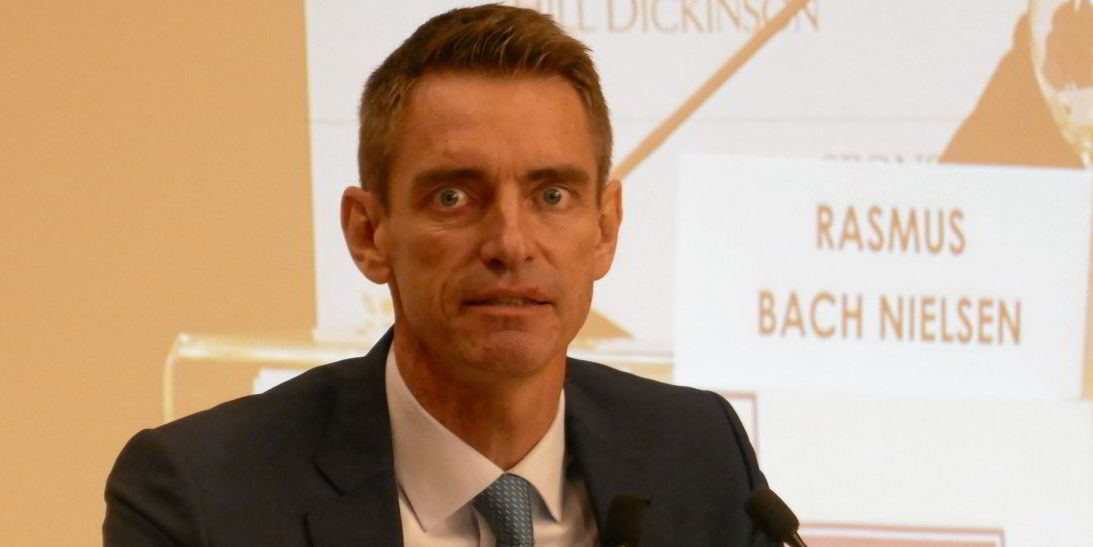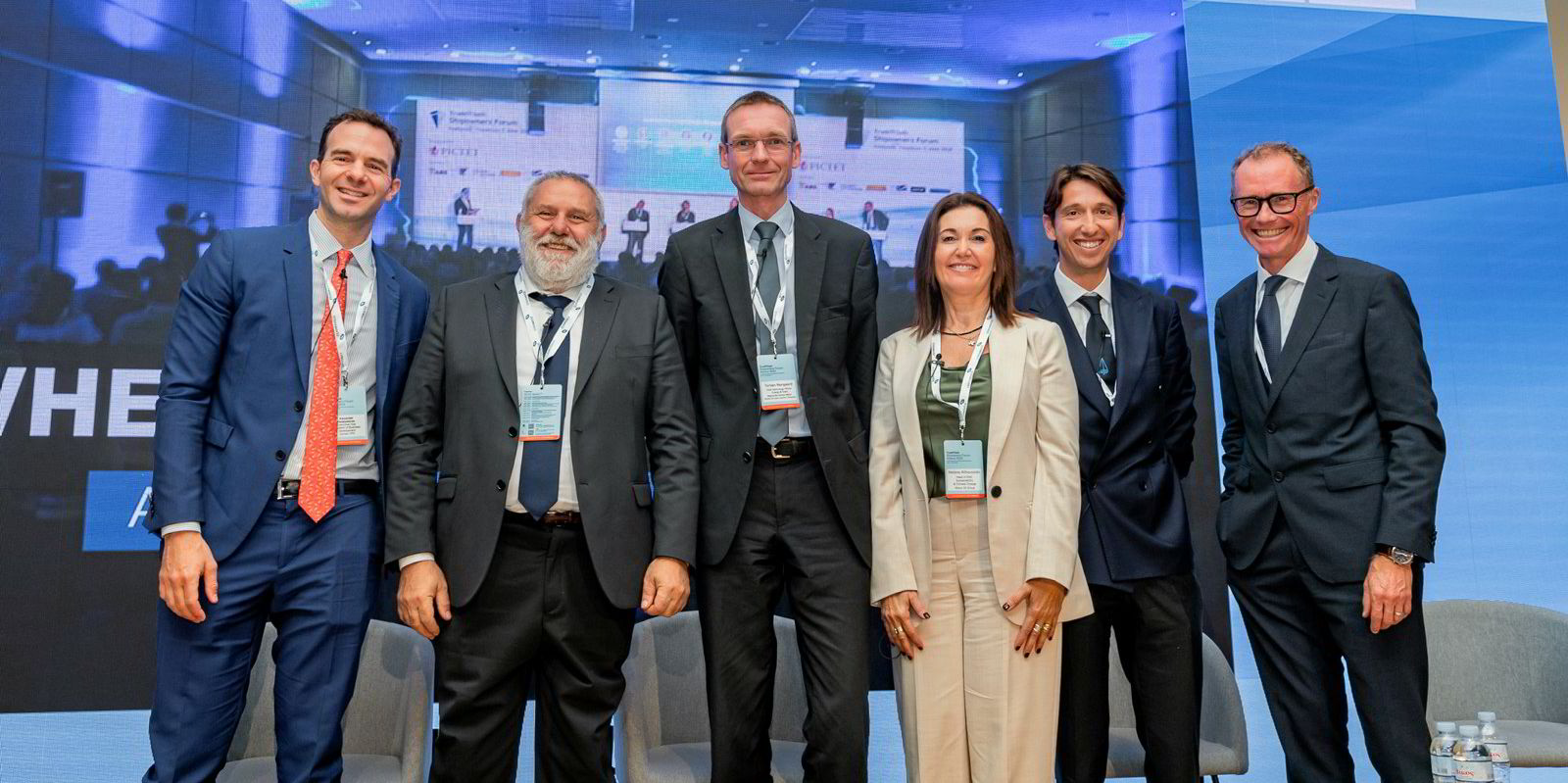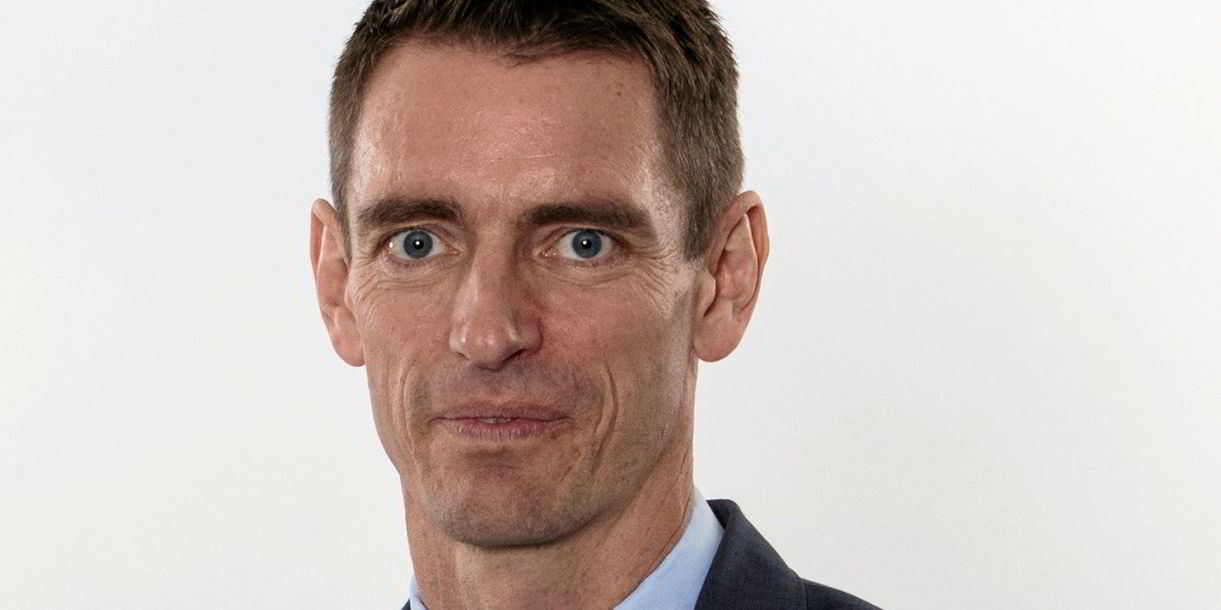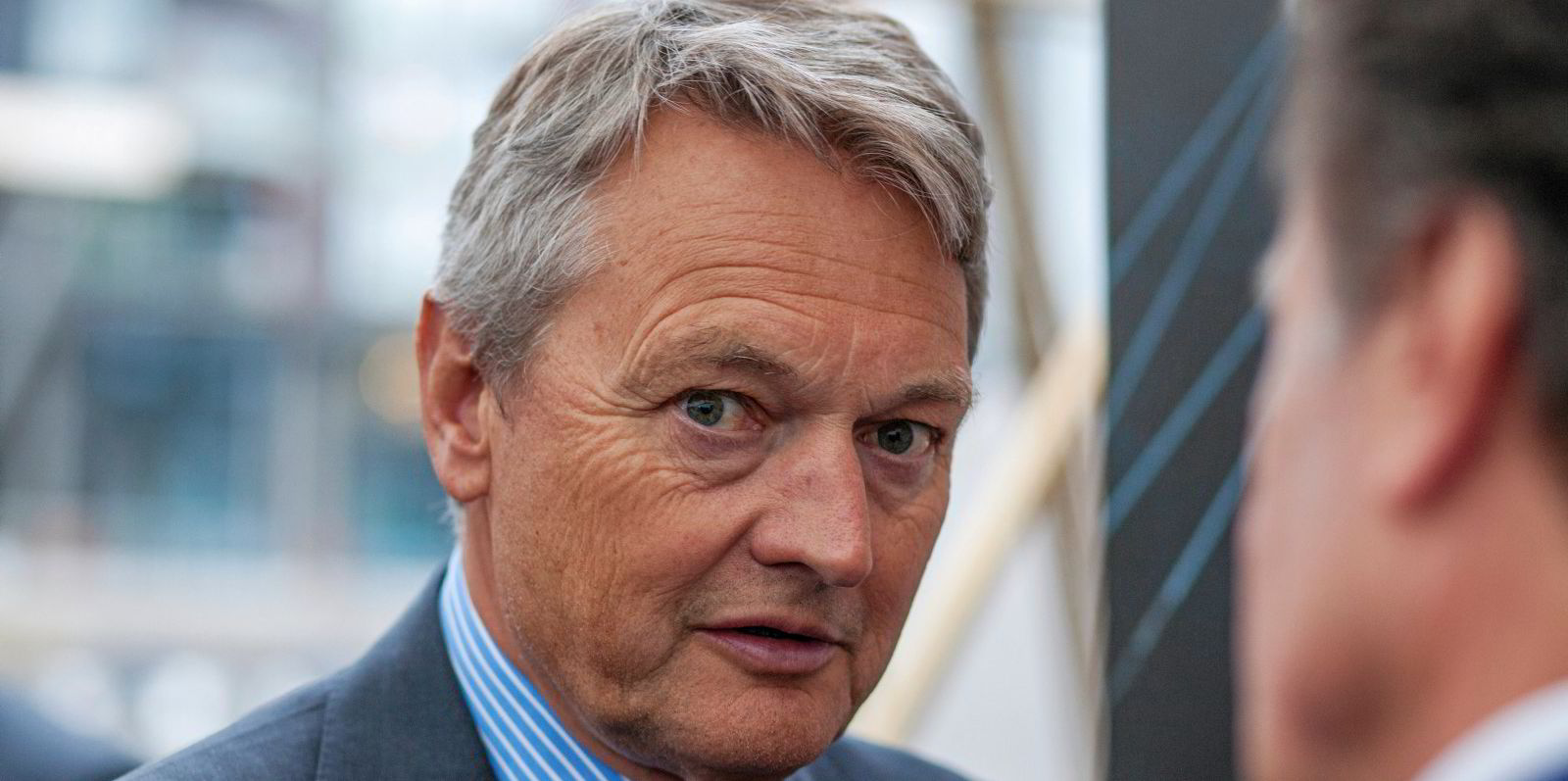Policymakers’ foot-dragging over carbon pricing is slowing or even stopping clean fuel projects, a senior Trafigura manager says.
That occasionally includes his own company, the Swiss trading giant’s global head of fuel decarbonisation, Rasmus Bach Nielsen, told a Capital Link Forum in Athens on 3 October.
“So what do we do? We delay,” he said, referring to a green ammonia bunkering venture in Norway his company participates in.
TradeWinds has already reported on Trafigura’s involvement in the planned facility in Sauda, Norway, in cooperation with green hydrogen company Hy2gen and Danish renewable investment fund Copenhagen Infrastructure Partners.
The three partners have already spent an initial €10m ($10.5m) on the project and were planning to top this up by a further €20m.
The additional investment, however, has been put on ice due to a lack of interest in the fuel by prospective buyers.
“Currently there are no up-takers to pay €1,100 to €1,200 per tonne of green ammonia — and it needs to be a 10-year uptake,” Bach Nielsen told the audience on Tuesday.
“It could be a shipowner, it could be a trading house, it could be an oil major. But the market is not yet there to take that risk.”
A full construction plan for the project was originally supposed to be drawn up by 2023, followed by a final investment decision and the beginning of final work in the first quarter of next year.
Demand will not emerge without a carbon levy, Bach Nielsen told the Capital Link audience.
“I don’t think we will see demand before we have a carbon pricing which mitigates and neutralises the cost of fossil fuels versus low and zero-emission fuels,” he said.
“This is one significant challenge that we have at the moment. Everybody in our industry should go to the International Maritime Organization and push as hard as we can.”
The IMO plans to adopt a carbon pricing mechanism by 2025 and is carrying out impact studies on the different proposals. China and South American countries have already expressed concerns over the effect of a carbon tax scheme on their economies.
Cold feet in Louisiana
Trafigura’s Norwegian venture was not the only example Bach Nielsen cited.
Some players are getting cold feet even in the US, where the Inflation Reduction Act bestows billions of dollars in subsidies upon hopeful clean fuel producers.
In August, Nutrien, one of the world’s biggest producers and traders of ammonia, suspended a $2bn plan to build the world’s largest clean ammonia production facility in Louisiana.
The plant would have provided the fuel necessary for another project that Nutrien jointly announced with Exmar two years ago to build a ship that can run on ammonia as early as 2025.
Nutrien management said it halted work on the Louisiana plant because estimated costs escalated and because of “continued uncertainty on the timing of emerging uses for clean ammonia”.
“Nutrien’s public statement was, ‘We don’t see the demand’,” Bach Nielsen commented.
The Trafigura manager made his remarks in a keynote address before receiving the Capital Link Maritime Sustainability Award. In May, Bach Nielsen was elected chairman of the Sea Cargo Charter, a Global Maritime Forum-backed framework for disclosing charterers’ alignment with decarbonisation targets.







